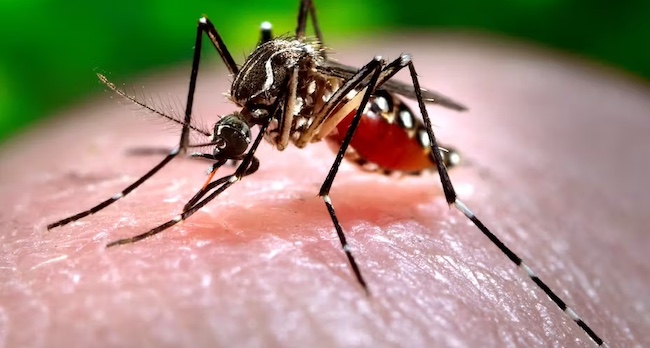The Nigeria Centre for Disease Control and Prevention (NCDC) has issued an alert following the confirmed outbreak of dengue fever in Sokoto State.
Collaborating with the National Emerging Viral Hemorrhagic Diseases Technical Working Group (NEVHD-TWG), the NCDC swiftly conducted a rapid risk assessment to guide preparedness efforts.
Despite the current moderate risk level, the NCDC underscores the necessity for heightened vigilance, recognising the potential for the outbreak to escalate.

While closely monitoring the situation, the NCDC expresses confidence in the state’s ability to respond effectively, drawing from valuable lessons learned during previous Dengue outbreaks in 2016 and 2019.
Thankfully, no fatalities have been reported thus far. The affected areas, including Sokoto South, Wamako, and Dange Shuni, primarily involve individuals aged 21-40, with 71 suspected cases reported and 13 cases confirmed as of November 2023.
At the national level, the NCDC has activated the Incident Coordination Centre (ICC) and initiated the development of an emergency incident action plan for Dengue Fever.
Preparedness measures include trained Rapid Response Teams on standby, a comprehensive risk communication and engagement strategy, and a proposed research project aimed at enhancing understanding of the disease vector across the six geopolitical zones.
Public health actions in Sokoto State encompass the dissemination of a public health advisory, clinician sensitization, enhanced surveillance, and collaborative efforts with the Ministry of Environment and Malaria Control Agency to improve sanitation and conduct reactive fumigation.
The NCDC urges Nigerians, especially those in Sokoto, to strictly adhere to preventive measures such as wearing protective clothing, using insecticide-treated nets, and maintaining proper sanitation.
As the nation grapples with this Dengue outbreak, early detection, community engagement, and a robust response system remain pivotal in containing the spread and safeguarding public health.
Individuals experiencing symptoms are encouraged to promptly seek medical attention at designated healthcare facilities for timely diagnosis and the initiation of supportive treatment.
The NCDC commits to closely monitoring the situation, anticipating that coordinated efforts will effectively curb the impact of the Dengue Fever outbreak in Sokoto State.
Dengue fever, caused by the dengue virus (DENV) and transmitted through infected mosquito bites, is prevalent in tropical and sub-tropical climates, particularly in urban and semi-urban areas worldwide. While most cases are mild, severe instances can occur, emphasising the importance of preventive measures and early detection for effective control.


